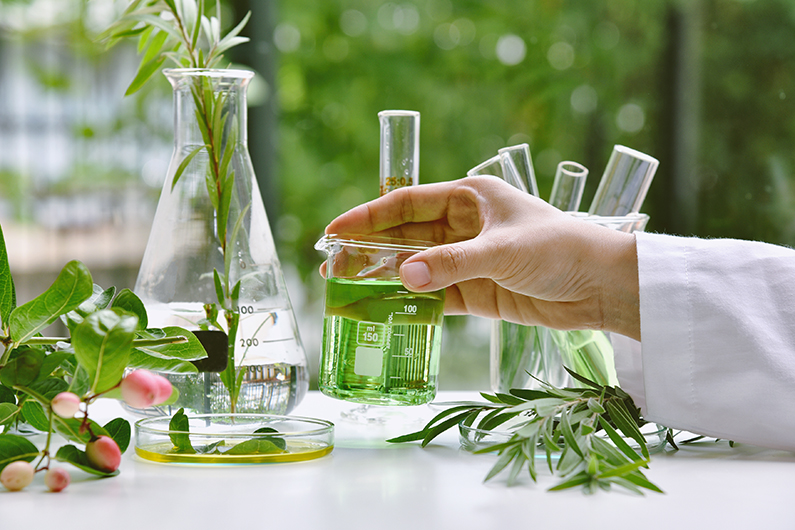More news
- PPG recognised for sustainability progress by FTSE4Good for sixth consecutive year
- Focus on industrial: Powering the energy industry during extreme heat
- Focus on powder coatings: The coatings industry’s transition to PFAS/PTFE-free solut...
- Birla Carbon Plants in USA, Canada, and Spain secure ISCC PLUS Certification
- Songwon awarded platinum level by EcoVadis for its sustainability achievements

Experts from Heubach discuss how the company tackles sustainability issues within the pigments industry
Climate change, along with social and governance aspects of sustainability, presents a global challenge that affects everyone,including the pigments industry. As a global leader in colour chemistry and material science, the Heubach Group recognises its responsibility to drive change within the industry. “Sustainability is a core value of Heubach, as well as the central business and innovation driver,” Stefan Doboczky, CEO of the Heubach Group, explains the vision of the company.
The Heubach Group is cognisant of the fact that the production of pigments and pigment preparations is particularly resource-and energy-intensive. Consequently, Heubach is committed to reducing its ecological footprint as much as possible by placing resources and efforts accordingly. This commitment is seen as a responsibility by the current leadership for the benefit of futuregenerations.
There are several levers to effect change in the pigments industry:
- Responsible sourcing: Heubach seeks raw materials and intermediates with minimal environmental impact.
- Process optimisation: By saving energy and resources in process technology and overall production, the aim is to reduce the CO2 footprint.
- Innovative products: Offering high-quality products that help customers save resources and achieve their sustainability goals is key.
Heubach is at the forefront of the industry regarding carbon neutrality, guided by the principle that improvement cannot happen without measurement. “Reliable, high-quality, scientific, and transparent – this applies to our products, management and sustainability activities,” summarises Thomas Lindner, Vice President of Sustainability, regarding Heubach’s approach.
Reliable and traceable data with product carbon Footprints
Heubach is able to measure the carbon neutrality of its products through its own TÜV-certified “Product Carbon Footprint (PCF) Methodology.” This method, established for assessing a product’s climate impact, aggregates all greenhouse gas emissions generated over the product’s life cycle. It is aligned with ISO Standard 14067:2018, the Greenhouse Gas Protocol (GHG P), and the Together for Sustainability (TfS) PCF Guideline. TÜV Rheinland confirms Heubach’s PCF calculation methodology is scientifically sound and represents the current state of the art.
According to the GHG Protocol, Heubach’s PCFs provide transparency on emissions from scopes 1, 2, and 3, encompassing GHG emissions from the company’s plant, purchased energy, and high-quality average data for purchased raw materials and transportation.
READ MORE:
A variety of PCFs have already been calculated for Heubach products in coatings and plastics applications, including productsfrom the Hostaperm, Novoperm, Hansa, PV Fast, and Graphtol brand families.
Another focus is on research and development in all aspects of sustainability. It is imperative to buy raw materials and buy or develop intermediates with the least possible environmental impact. This also includes product solutions that positively affect the environmental footprint of customers and partners products throughout the value chain and in final applications.
One example is our development of environmentally friendly water-based paints and coatings for various applications more than 30 years ago. These products contain no solvents and are, therefore, particularly safe for flora and fauna.
The demand for biodegradable and compostable plastics is increasing significantly. Colouring biodegradable polymers, such as PLA, PHA/PBS, and PBAT, requires careful selection of pigments to meet strict environmental standards. Heubach’s range of organic pigments complies with the European Union EN 13432:2000 standard when used within the maximum concentration limits in final plastic applications. Selected products from the PV Fast and Graphtol ranges carry the OK compost INDUSTRIAL label, ensuring the compostability of packaging and products themselves in industrial composting facilities. They are also compliant with EU Packaging Directive requirements.
The majority of conventional black plastics are coloured with carbon black, which NIR technology detectors cannot identify due to the lack of reflection. Heubach’s black colourants enable the identification of polymers by NIR sorting devices, a prerequisite for recycling black plastics.
Heubach also offers a broad range of universal anti-corrosive pigments, providing sustainable and environmentally friendly solutions that significantly extend the lifespan of steel and reduce long-term costs. Developed by Heubach, these products, including orthophosphates, polyphosphates, organic inhibitors, wide-spectrum anti-corrosives and zinc-free corrosion protection, set the standard for safe and modern protective coatings.
Beyond these examples of how products can extend their sustainability value propositions throughout the sourcing and production chain and into final applications, basic prerequisites must be met: the safe handling of pigments and pigment preparations remains Heubach’s top priority, ensuring compliance with all national and international rules, laws, and regulations, and in some cases, surpassing them.







